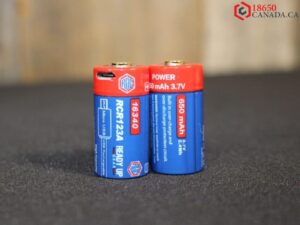Lithium ions have become a buzzword in the world of technology and energy storage. With the increasing demand for portable electronics and the rise of electric vehicles, understanding lithium ions is crucial. In this article, we’ll delve into the fascinating world of lithium ions, exploring their properties, role in batteries, applications, environmental impact, advancements in technology, and the future of lithium-ion batteries.
In this article, we explore the world of lithium ions, focusing on their properties, role in batteries, applications, environmental impact, advancements in technology, and the future of lithium-ion batteries. Lithium ions are lightweight, highly reactive particles with a high charge-to-weight ratio, making them ideal for various industries. They power our portable electronics and electric vehicles, and they are crucial for energy storage in renewable systems.
However, it’s important to consider their environmental impact, such as the extraction and production of lithium. The article highlights ongoing advancements in lithium-ion technology, including solid-state batteries and improved electrode materials, while addressing challenges like limited battery life and sustainability. Overall, understanding lithium ions is key to comprehending the evolving landscape of energy storage and the potential for more efficient and sustainable solutions in the future.
Understanding Lithium Ions
To comprehend lithium ions, we need to understand the basic concept of ions. Ions are atoms or molecules that have gained or lost electrons, resulting in a net electrical charge. Lithium ions, specifically, are positively charged particles formed when a lithium atom loses one electron.

Properties of Lithium Ions
Lithium ions possess unique properties that make them ideal for various applications. They are lightweight, highly reactive, and have a high charge-to-weight ratio. Additionally, they exhibit excellent electrochemical performance and long cycle life, which is crucial for rechargeable batteries.
Role of Lithium Ions in Batteries
Lithium-ion batteries have revolutionized the portable electronics industry and are now widely used in electric vehicles. These batteries consist of two electrodes, an anode, and a cathode, separated by an electrolyte. During charging and discharging, lithium ions move between the electrodes, creating a flow of electrical current.
Applications of Lithium Ions
The applications of lithium ions span various industries. They power our smartphones, laptops, and tablets, enabling us to stay connected on the go. Electric vehicles rely on lithium-ion batteries for clean and efficient transportation. Moreover, renewable energy systems, such as solar and wind, often utilize lithium-ion batteries for energy storage.
Environmental Impact of Lithium Ions
While lithium-ion batteries offer numerous benefits, it’s important to consider their environmental impact. The extraction and production of lithium can have adverse effects on the environment, including water pollution and habitat disruption. However, efforts are being made to improve sustainability and develop recycling methods for lithium-ion batteries.
Advancements in Lithium Ion Technology
The field of lithium-ion technology is continuously evolving. Researchers and engineers are working on enhancing battery performance, increasing energy density, and improving safety measures. Innovations such as solid-state lithium-ion batteries and advanced electrode materials show promise for the future.
Challenges and Future of Lithium Ion Batteries
Despite their many advantages, lithium-ion batteries face challenges. Issues like limited battery life, the potential for thermal runaway, and the reliance on finite resources require further attention. However, ongoing research and development aim to overcome these hurdles, paving the way for more efficient and sustainable energy storage solutions.
Conclusion
Lithium ions play a vital role in our increasingly connected and electric world. Their unique properties and applications have transformed the way we use and store energy. As advancements continue, it’s important to address the environmental impact and work towards more sustainable and efficient lithium-ion batteries.
FAQs
Q1. Are Lithium-Ion Batteries Safe to Use?
Lithium-ion batteries are generally safe for everyday use. However, mishandling or manufacturing defects can lead to safety issues. It is essential to follow proper charging practices and use reputable battery manufacturers to minimize risks.
Q2. How Long Do Lithium-Ion Batteries Last?
The lifespan of lithium-ion batteries varies depending on factors such as usage patterns and operating conditions. Generally, they can last for several years, with a gradual decrease in capacity over time.
Q3. Can Lithium-Ion Batteries be Recycled?
Yes, lithium-ion batteries can be recycled. Recycling helps recover valuable materials and reduces the environmental impact of battery disposal. Proper recycling facilities and programs are available in many regions.
Q4. Can Lithium-Ion Batteries Catch Fire?
While rare, lithium-ion batteries have the potential to catch fire in certain conditions, usually due to misuse, damage, or manufacturing defects. Strict safety measures and quality control standards are in place to minimize such risks.
Q5. What is the Future of Lithium-Ion Batteries?
The future of lithium-ion batteries holds great potential. Ongoing research aims to improve energy density, lifespan, and safety while exploring alternative materials. Additionally, emerging technologies like solid-state batteries show promise for next-generation energy storage.

